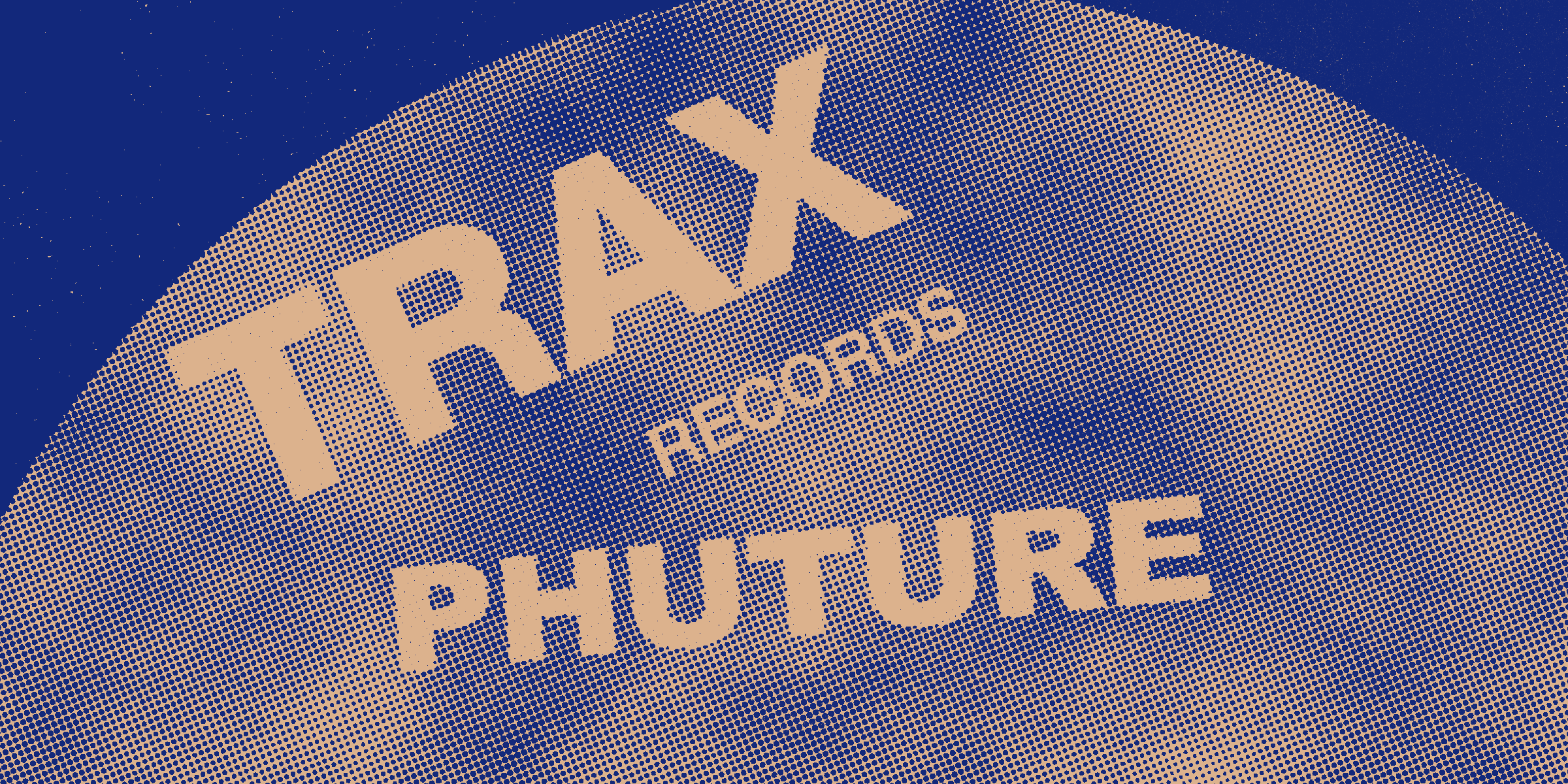Hot takes on the utter importance of Coldcut (whether you know it or not)
Coldcut and their journey from record stores to "Top of the Pops" to Ninja Tune and beyond.

If you don't know them, you should. If you do know them, that's good. And there's no time like now to dig a little deeper into the amazing and more than a little important career of the artists known as Coldcut. For those of us born in the pre-internet era, and certainly those who grew up in the 80s, the impact of Coldcut on the music charts, on sampling culture, on record label marketing and a general jolly nudge to the overall dance music culture can't really be overstated. What makes it even wilder is to consider how this extended right around the world. Even as a kid in Australia, I was exposed to their better known work, and certainly the later portion of my teenage years were soundtracked by the artists on their label (channeled into Australia for the most part via the passion of local distributed like Creative Vibes, who would eventually sign Superfluid, bringing us one step closer to our heroes). Having cross paths with the crew over the years, I've always been somewhat satisfied, for want of a better word, at just how brilliantly English they always were. And remain to be. Which will make sense with a little bit of a story about two likely lads and some cheeky cutting and scratching.
A slice of Coldcut from the 80s
Coldcut, a dynamic duo in the world of electronic music, was formed in 1986 by Matt Black and Jonathan More. Both members brought a unique set of skills and experiences to the table, which would later shape the innovative and eclectic sound of Coldcut.
Matt Black, originally from Canterbury, England, had a background in computer science and was a passionate fan of electronic music. His interest in the intersection of technology and music would later become a defining characteristic of Coldcut's sound and ethos.
Jonathan More, on the other hand, was a former art teacher with a deep appreciation for soul, funk, and jazz. More's diverse musical tastes and creative approach to music production played a crucial role in the formation of Coldcut's genre-blending style.
The two met in the mid-80s at a London record shop where More was working. They quickly bonded over their shared love of music and began collaborating, initially DJing together at parties and clubs. Their chemistry was undeniable, and they soon decided to take their partnership to the next level, forming Coldcut and beginning their journey into music production.
Early career and breakthrough
Coldcut's early career was marked by a series of innovative tracks that pushed the boundaries of electronic music. Their first hit, "Say Kids What Time Is It?", was a pioneering example of sampling, using snippets from various sources to create a collage of sounds. The track was a hit in the London club scene and established Coldcut as a creative force in electronic music.
However, it was their remix of Eric B. & Rakim's "Paid in Full" that truly catapulted Coldcut into the spotlight. The "Seven Minutes of Madness" remix was a groundbreaking piece of work, featuring a diverse array of samples, from Israeli folk music to American hip hop. The remix was a commercial success, reaching the top of the UK Singles Chart and gaining international recognition.
This early success established Coldcut's reputation for innovative sampling and genre-blending sounds, and set the stage for their later work. Their approach to music production, which combined DJing techniques with digital technology, was ahead of its time and would have a significant impact on the development of electronic music.
Influence on electronic music
Coldcut's innovative use of samples, breakbeats, and digital technology had a profound influence on the development of electronic music. They were pioneers in the use of sampling, a technique that involves taking snippets of sound from other recordings and reusing them in a new musical context. Their creative and eclectic use of samples, as demonstrated in tracks like "Say Kids What Time Is It?" and their remix of "Paid in Full", helped to popularize this technique and opened up new possibilities for electronic music production.
Moreover, Coldcut's music often blurred the lines between different genres, combining elements of hip hop, funk, jazz, and electronica to create a unique and distinctive sound. This genre-blending approach was particularly influential in the development of trip hop and drum and bass, two genres that emerged in the UK in the late 80s and early 90s.
Coldcut's influence can be heard in the work of many later electronic music artists, from the trip hop of Massive Attack and Portishead to the drum and bass of Goldie and Roni Size. Their innovative approach to music production helped to expand the sonic palette of electronic music and paved the way for future experimentation.
Ninja Tune record label
In 1990, seeking greater creative control and disillusioned with the constraints of major record labels, Coldcut founded their own independent record label, Ninja Tune. The label quickly became a home for innovative and underground electronic music, releasing albums by artists such as Amon Tobin, The Cinematic Orchestra, and Bonobo.
Ninja Tune was not just a record label, but a platform for Coldcut and other artists to experiment and push the boundaries of electronic music. The label became known for its eclectic roster and its commitment to artistic freedom, often releasing music that was too experimental or unconventional for mainstream labels.
Over the years, Ninja Tune has grown into one of the most respected independent record labels in the world, with a diverse catalog that spans a wide range of genres and styles. The label's impact on the music industry has been significant, providing a platform for innovative music and helping to shape the direction of electronic music. Through Ninja Tune, Coldcut has not only released their own music but also nurtured and promoted a wide range of other artists, further extending their influence on the world of electronic music.
Collaborations and partnerships
Throughout their career, Coldcut has been known for their collaborative spirit, working with a wide range of artists across various genres. These collaborations have not only enriched their own music but have also led to some groundbreaking moments in electronic music.
One of their most notable collaborations was with Yazz on the track "Doctorin' the House", which became a top ten hit in the UK. They also worked with Queen Latifah on the track "Find a Way", further demonstrating their ability to blend hip hop with electronic music.
Coldcut's collaborations weren't limited to musicians. They also worked with avant-garde artists like multimedia artist Hex and even modern classical composers like John Cage. These collaborations often resulted in innovative multimedia performances and installations, further showcasing Coldcut's commitment to pushing the boundaries of what is possible in music.
These partnerships have allowed Coldcut to explore new sonic territories and have resulted in some of their most innovative and memorable work. They highlight the duo's openness to different musical styles and their ability to seamlessly blend these influences into their own unique sound.
Innovation and technology
From the beginning, Coldcut has been at the forefront of music technology. Their innovative use of digital sampling in the 80s was just the start of their exploration into the possibilities of technology in music.
In the 90s, they developed VJamm, a software for audio-visual mixing that allowed them to synchronise sound and video in their live performances. This was a groundbreaking development in the world of electronic music, paving the way for the rise of VJing (video jockeying) and the integration of visual elements into DJ sets.
Coldcut also experimented with interactive music, creating tracks that allowed the listener to manipulate and rearrange the music. This was a radical departure from the traditional concept of a fixed, linear music track, and opened up new possibilities for audience engagement and participation. Their innovative use of technology has not only shaped their own music but has also had a significant impact on the wider world of electronic music. By constantly pushing the boundaries of what is possible with technology, Coldcut has helped to redefine the role of the artist and the nature of musical experience in the digital age.
Legacy and influence
Coldcut's legacy in the world of electronic music is significant and far-reaching. Their innovative use of sampling, their genre-blending approach, and their pioneering work in music technology have had a profound impact on the development of electronic music.
Many artists and producers have cited Coldcut as an influence, from trip hop acts like Massive Attack and Portishead to electronic music pioneers like The Chemical Brothers and Aphex Twin. Their innovative techniques and creative approach to music production have inspired countless artists and have helped to shape the sound of electronic music.
Beyond their influence on music, Coldcut has also had a significant impact on the music industry through their independent record label, Ninja Tune. By providing a platform for innovative and experimental music, they have helped to challenge the dominance of major labels and have contributed to the diversity and vitality of the music scene.
References
- Coldcut - Wikipedia". [Online]. Available: https://en.wikipedia.org/wiki/Coldcut.
- "Coldcut Biography, Songs, & Albums | AllMusic". [Online]. Available: https://www.allmusic.com/artist/coldcut-mn0000092226/biography.
- "Coldcut Discography | Discogs". [Online]. Available: https://www.discogs.com/artist/946-Coldcut.
- "Coldcut Biography". [Online]. Available: http://www.poprockbands.com/coldcut/biography/prc.html.
- "Coldcut: Back to the Future | Red Bull Music Academy Daily". [Online]. Available: https://daily.redbullmusicacademy.com/2018/01/coldcut-dj-history-interview/. [Accessed: 10- Jul- 2023].
- "Coldcut Discography". [Online]. Available: https://www.discogs.com/artist/946-Coldcut. [Accessed: 10- Jul- 2023].


